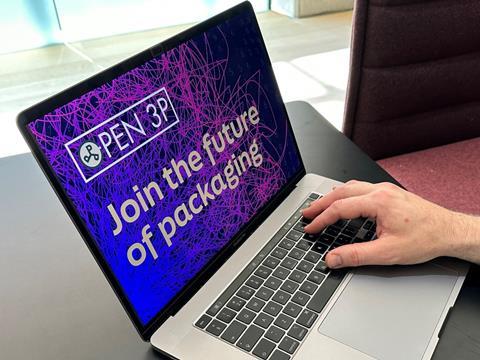
The Open 3P Data Standard for packaging, developed initially to support efficient and consistent data capture, sharing, and reporting on plastic packaging has now been expanded to cover all common packaging materials including glass, metals, paper, fibre-based composites and wood.
Open Standards are standards that are free to adopt, implement and extend, and are usually developed and maintained through consensus and collaboration. They are already widely used. HTML is one example, which is the standard global markup language for creating web pages.
The Open 3P Data Standard has been collaboratively developed by a consortium of industry partners comprising Dsposal, Ecosurety, Open Data Manchester, OPRL and RECOUP, with funding from UK Research & Innovation’s Smart Sustainable Plastics Packaging Challenge.
The aim is to help everyone involved in manufacturing, selling, and recycling packaging to collate and share packaging data with each other, regulators and government agencies to comply with current and forthcoming environmental legislation.
“Open 3P provides a framework and a ‘common language’ to allow the packaging supply chain and its customers to share compatible packaging data easily, quickly, and cost effectively,” explained Julian Tait, CEO of Open Data Manchester, the not-for-profit organisation developing the standard on behalf of the industry. “It doesn’t store information, it simply provides a consistent ‘recipe’ that everyone can follow in collating their packaging data.”
With the new packaging Extended Producer Responsibility legislation requiring organisations to collate and report more data on the packaging they put onto the market from the 1st of January this year, the standard apparently has the potential to help reduce the administrative burden, as well as facilitate and speed up routine supply chain data requests.
UK food packaging firm Colpac Ltd has been closely involved in the development of the standard and is now looking to use it.
“Over the last year, Colpac has closely supported the development of the Open 3P Data Standard and data sharing platform. We have successfully tested the prototype standard and are now running full trials using data specific to our range of sustainable food packaging,” said Colpac’s compliance and QA manager Frances Dickman.
Dickman added: “We are very excited by the prospect of a shared standard. This will allow stakeholders across our packaging supply chain to easily collect and share detailed and regularly reviewed data, making the process more streamlined and efficient.”
For ease of use, the standard has been designed to be flexible with tiered layers of information. Users can start with a simple description of the packaging, such as its core material, and build in more detail as necessary or as additional information becomes available.
This might include different barrier film layers and adhesives, for example, or components such as plastic caps, sealing strips, nozzles and ring pulls. Other key data categories include end-of-life management options and external identifiers such as product codes and chemical identifiers.
If widely adopted, the project partners believe Open 3P may also help to lower the environmental footprint of packaging by promoting a better understanding of the composition of packaging formats in the supply chain, supporting improved recycling, and making it easier to identify areas where sustainability can be improved. They are also convinced that better and more granular data on plastic packaging will also be important to the UN Treaty to end plastic pollution and project lead Dsposal is responding to interest in the standard from a number of countries.
Following its launch, the standard will now be safeguarded and maintained by Open Data Manchester and overseen by an independent standard custodian body made up of packaging industry stakeholders.
If you liked this article, you might also enjoy:
McKinsey on whether or not on-pack sustainability claims affect consumer spending
A deep dive into the most important packaging sustainability trends and solutions














No comments yet